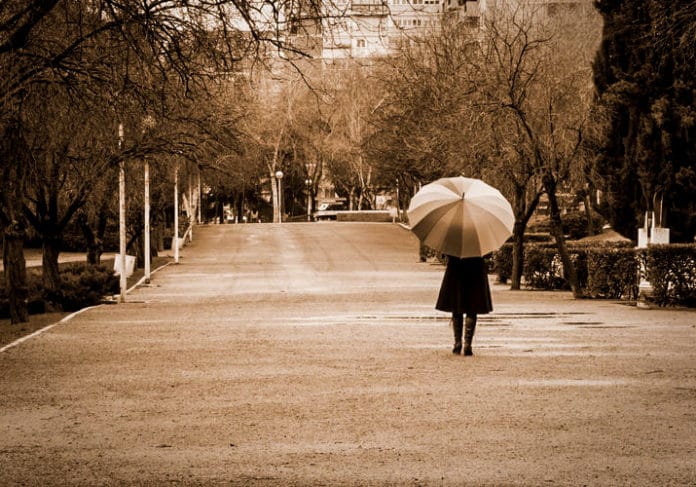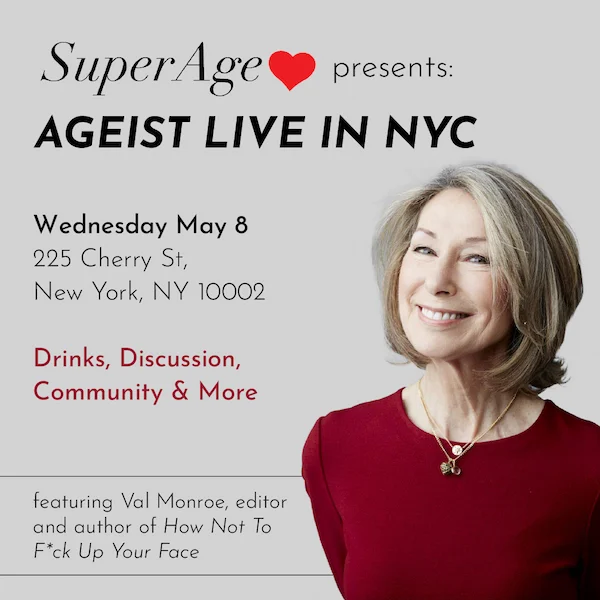We, who sometimes feel invisible, have the power to make an impact on loneliness.
According to our friend Dr. Charlotte Yeh, the morbidity (death factor) associated with loneliness is greater than that of cigarette smoking.
Loneliness is not to be confused with being alone. One can be surrounded by people and feel lonely, just as one can live alone and feel perfectly fine. In western societies, there is an increasing marginalization of entire groups of people leading to an epidemic of loneliness. Over a million older Britons report going more than a month without speaking to a friend, neighbor or relative, according to Age UK. Why is this?
Our work environments are being cleansed of entire age groups. Restaurants, social occasions, recreation — these have all become age specific. Each age group is being treated as its own special needs group. This is a terrible development, impoverishing everyone involved.
Think about how the media, in looking for political stories, is now frequently setting up dynamics of young vs old. How often have we heard the words “young” or “old” used when discussing this or that politician? It’s an abused and badly framed narrative. The commonalities of interest between the ages vastly outweighs the differences. Imagine if every time a politician is mentioned, rather than the words “young” or “old” being used, they were labeled ethnically? That would not go over so well, but people are quick to grab the age handle and pull it all day long.
For most of human history, generations mixed much more and with what would seem to be far better outcomes. For so many people, this artificial segmenting of humanity is painfully negative. Madrid, where the generations easily mix up and down the age column, happens to be the world’s champ in urban centers with the longest life span. Blending of age means increasing the variety of opinions, knowledge and energies. Monocultures are fragile, as any ecologist will testify.
What do we do? Here at AGEIST, we don’t go in for the big legal and institutional fights, preferring to leave those to others better equipped to fight those battles. We take a very personal approach: say hello, start a conversation, take an interest in a stranger. At a basic, fundamental level, let’s talk more.
Loneliness is killing people, not to mention causing untold suffering. This is not just a crisis of the aged or the middle-aged — young people feel the alienation also. We, and by this I mean everyone who is reading this, have a unique skill set that allows us to make an impact — we are curious, we are confident and we want to feel that we matter in the world. We can make a difference, one person at a time.
Smile and say hello to the next person you see. Who knows, it may possibly be the only human interaction that person has all day. Homeless person, teenager stuck on a phone, business guy lost in thought, the woman at the post office…go ahead, make their day, acknowledge that you see them, that you notice them.
Loneliness is anti-human. Think of what they do to people in prison as punishment: they lock them away from other people. How horrible it must be to be surrounded by people and feel that same sense of isolation.
We, who often feel invisible, have within our power the ability to help another person feel seen. We have lived some years, which gives us a thick-skinned confidence to reach out and risk making a connection to a stranger. Make it a point today to make a difference. It is so easy. It costs nothing. We have a large global community now at AGEIST. We have agency and we have capacity, something that some of us worry about losing. Let’s use it in a simple, humble, human way: say hi to someone, listen to their story, be interested. You will feel better for it.



